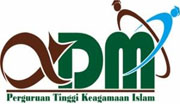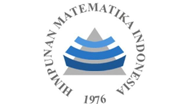- Focus and Scope
- Section Policies
- Peer Review Process
- Publication Frequency
- Open Access Policy
- Plagiarism Check
- Publication Ethics
Focus and Scope
Zero: Journal of Mathematics and Applied Science is a mathematical journal published twice a year in June and January by the Mathematics Department, Faculty of Science and Technology, State Islamic University, North Sumatra.
We welcome authors for original articles (research), review articles, interesting case reports, special articles illustrations that focus on the Pure and Applied Mathematics.
Subjects suitable for publication include, but are not limited to, the following fields of:
- Fuzzy Systems and its Applications
- Geometry Theories and its Applications
- Graph Theories and its Applications
- Real Analysis and its Applications
- Operation Research and its Applications
- Statistical Theories and its Applications
- Dinamical Systems and its Applications
- Mathematics Modeling and its Applications
- Discrete Mathematics and its Applications
- Computer Mathematics and its Applications
- Mathematics Actuaria and its Applications
- Mathematic financial
- General Science
Section Policies
Articles
Peer Review Process
All manuscripts submitted to Zero must follow focus and scope, and author guidelines. The submitted manuscripts must address scientific merit or novelty appropriate to the focus and scope. All manuscripts must be free from plagiarism contents. All authors are suggested to use plagiarism detection software to do the similarity checking. Editors check the plagiarism detection of articles in this journal by using a Turnitin software.
The research article submitted to Zore be double blind review at least 2 (two) or more expert reviewers. The reviewers give scientific valuable comments improving the contents of the manuscript.
Final decision of articles acceptance will be made by Editors according to reviewers comments. Publication of accepted articles including the sequence of published articles will be made by Editor in Chief by considering sequence of accepted date and geographical distribution of authors as well as thematic issue.
Publication Frequency
Since 2017, Publish twice in a year (biannually) in June and December.
In accordance with the latest submission to BRIN, starting in 2025, ZERO: Jurnal Sains, Matematika dan Terapan has officially adopted a triannual publication schedule.
Open Access Policy
This journal provides immediate open access to its content on the principle that making research freely available to the public supports a greater global exchange of knowledge.
?
Plagiarism Check
ZERO: Jurnal Sains, Matematika dan Terapan, as a respected national journal, wants to ensure that all authors are careful and comply with international standards for academic integrity, particularly on the issue of plagiarism.
ZERO: Jurnal Sains, Matematika dan Terapan, recognizes that plagiarism is not acceptable and therefore establishes the following policy stating specific actions (penalties) when plagiarism is identified in an article that is submitted for publication in ZERO: Jurnal Sains, Matematika dan Terapan. ZERO: Jurnal Sains, Matematika dan Terapan will use Turnitin's originality checking software as our tool in detecting similarities of texts in articles. A maximum of 25% of similarities is allowed.
Plagiarism occurs when an author takes ideas, information, or words from another source without proper credit to the source. Even when it occurs unintentionally, plagiarism is still a serious academic violation, and unacceptable in international academic publications.
When the author learns specific information (a name, date, place, statistical number, or other detailed information) from a specific source, a citation is required. (This is only forgiven in cases of general knowledge, where the data is readily available in more than five sources or is common knowledge
When the author takes an idea from another author, a citation is required—even if the author then develops the idea further. This might be an idea about how to interpret the data, either what methodology to use or what conclusion to draw. It might be an idea about broad developments in a field or general information. Regardless of the idea, authors should cite their sources. In cases where the author develops the idea further, it is still necessary to cite the original source of the idea, and then in a subsequent sentence the author can explain her or his more developed idea.
Publication Ethics
Publication Ethic Statement
PUBLICATION ETHICS AND MALPRACTICE STATEMENT
Zero: Jurnal Sains Matematika dan Terapanis a scientific periodical journals that managed by peer-review, in which other scientists (peer-review) evaluate the article’s value and credibility before published. This journal is dedicated to publish scientific articles in the study of Islamic education from different aspects and perspectives as well as the themes that have been determined. This journal published twice a year, in April and September. aims to become one of the forums for ideas and results of researches dissemination in the field of Islamic Studies. Zero: Jurnal Sains Matematika dan TerapanIn addition, it also can be a major reference in the same field. Zero: Jurnal Sains Matematika dan Terapancommitted to keep maintaining the high ethical standard in scientific publication include the peer-review, author, journal editor, and publisher.
ETHICAL GUIDELINE FOR JOURNAL PUBLICATION
The publication of an article in Zero: Journal of Mathematical and Applied Scienceis an essential building block in the development of a coherent and respected network of knowledge. It is a direct reflection of the quality of the work of the authors and the institutions that support them. Peer-reviewed articles support and embody the scientific methods. It is therefore important to agree upon standards of expected ethical behavior for all parties involved in the act of publishing: the author, the editor, the reviewer, the publisher, and the society. As the publisher of Ad-Deenar: Jurnal Ekonomi dan Bisnis Islam, State Islamic University of North Sumatra Medan, takes its duties of guardianship over all stages of publishing seriously and it recognizes its ethical and other responsibilities. State Islamic University of North Sumatra Medan committed to ensuring that advertising, reprint or other commercial revenue has no impact or influence on editorial decisions.
Publication Decisions
The editors of Zero: Jurnal Sains Matematika dan Terapanis responsible for deciding which articles submitted to the journal should be published. The validation of the work in question and its importance to researchers and readers must always drive such decisions. The editors may be guided by the policies of the journal's editorial board and constrained by such legal requirements as shall then be in force regarding libel, copyright infringement, and plagiarism. The editors may confer with other editors or reviewers in making their decisions.
Plagiarism Screening
It is basically author’s duty to only submit a manuscript that is free from plagiarism and academically malpractices. The editor, however, double checks each article before its publication. The first step is to check plagiarism against offline database developed by State Islamic University of North Sumatra Medan and, secondly, against as much as possible online databases.
Fair Play
An editor at any time evaluates manuscripts for their intellectual content without regard to race, gender, sexual orientation, religious belief, ethnic origin, citizenship, or political philosophy of the authors.
Confidentiality
The editors and any editorial staff must not disclose any information about a submitted manuscript to anyone other than the corresponding author, reviewers, potential reviewers, other editorial advisers, and the publisher, as appropriate.
Disclosure and Conflicts of Interest
Unpublished materials disclosed in a submitted manuscript must not be used in editors' own research without the express written consent of the author.
DUTIES OF REVIEWERS
Contribution to Editorial Decisions
Peer review assists the editors in making editorial decisions and through the editorial communications with the authors may also assist the author in improving the quality of the paper.
Promptness
Any selected referee who feels unqualified to review the research reported in a manuscript or knows that its prompt review will be impossible should notify the editors and excuse himself from the review process.
Confidentiality
Any manuscripts received for review must be treated as confidential documents. They must not be shown to or discussed with others except as authorized by the editor.
Standards of Objectivity
Reviews should be conducted objectively. Personal criticism of the author is inappropriate. Referees should express their views clearly with supporting arguments.
Acknowledgement of Sources
Reviewers should identify relevant published work that has not been cited by the authors. Any statement that an observation, derivation, or argument had been previously reported should be accompanied by a proper citation. A reviewer should also call to the editors' attention any substantial similarity or overlap between the manuscript under consideration and any other published paper of which they have personal knowledge.
Disclosure and Conflict of Interest
Privileged information or ideas obtained through peer review must be kept confidential and not used for personal advantage. Reviewers should not consider manuscripts in which they have conflicts of interest resulting from competitive, collaborative, or other relationships with any of the authors, companies, or institutions related to the papers.
Review Process
Every manuscript submitted to Zero: Jurnal Sains Matematika dan Terapanis independently reviewed by at least two reviewers in the form of "double-blind review". Decision for publication, amendment, or rejection is based upon their reports/recommendation. In certain cases, the editor may submit an article for review to another, third reviewer before making a decision, if necessary.
DUTIES OF AUTHORS
Reporting Standards
Authors of reports of original research should present an accurate account of the work performed as well as an objective discussion of its significance. Underlying data should be represented accurately in the paper. A paper should contain sufficient detail and references to permit others to replicate the work. Fraudulent or knowingly inaccurate statements constitute unethical behaviour and are unacceptable.
Originality and Plagiarism
The authors should ensure that they have written entirely original works, and if the authors have used the work and/or words of others that this has been appropriately cited or quoted.
Multiple, Redundant, or Concurrent Publication
An author should not in general publish manuscripts describing essentially the same research in more than one journal or primary publication. Submitting the same manuscript to more than one journal concurrently constitutes unethical publishing behaviour and is unacceptable.
Acknowledgement of Sources
Proper acknowledgment of the work of others must always be given. Authors should cite publications that have been influential in determining the nature of the reported work.
Authorship of the Paper
Authorship should be limited to those who have made a significant contribution to the conception, design, execution, or interpretation of the reported research. All those who have made significant contributions should be listed as co-authors. Where there are others who have participated in certain substantive aspects of the research project, they should be acknowledged or listed as contributors. The corresponding author should ensure that all appropriate co-authors and no inappropriate co-authors are included on the paper, and that all co-authors have seen and approved the final version of the paper and have agreed to its submission for publication.
Disclosure and Conflicts of Interest
All authors should disclose in their manuscript any financial or other substantive conflict of interest that might be construed to influence the results or interpretation of their manuscript. All sources of financial support for the project should be disclosed.
Fundamental errors in Published Works
When an author discovers a significant error or inaccuracy in his/her own published work, it is the author’s obligation to promptly notify the journal editor or publisher and cooperate with the editor to retract or correct the paper.








